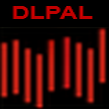
Are There Any Simple Calendar Effects in Bitcoin Market?
Is Bitcoin market efficient ? A new research study analyzes simple calendar effects:
Authors: Baur, Cahill, Godfrey, Liu
Title: Bitcoin Time-of-Day, Day-of-Week and Month-of-Year Effects in Returns and Trading Volume
Link: https://papers.ssrn.com/sol3/papers.cfm?abstract_id=3088472
Abstract:
There is a large literature that reports time-specific anomalies in equity markets such as the Monday effect, the January effect and the Halloween effect. This study is the first to report intra-day time-of-day, day-of-week, and month-of-year effects for Bitcoin returns and trading volume. Using more than 15 million price and trading volume observations from seven global Bitcoin exchanges reveal time-varying effects but no consistent or persistent patterns across the sample period. The results suggest that Bitcoin markets are efficient.
Notable quotations from the academic research paper:
"The aim of this paper is to analyze market efficiency by testing for time-dependent anomalies in returns and trading volume. For example, do Bitcoin investors trade differently when major stock exchanges are open compared to when they are closed? Do they trade less on weekends and during the Northern hemisphere summer months (i.e., June – August)? To answer these types of questions, we analyze time-of-the-day (ToD), day-of-the-week (DoW) and month-of-the-year (MoY) patterns in Bitcoin returns and trading volume.
Given the conflict between efficient pricing and the seemingly irrational demand for Bitcoin, we look for any consistent patterns in returns that would contradict the efficient market hypothesis. Since Bitcoin is a relatively new and unregulated asset, it is possible that the market has been dominated by retail investors. This suggests that we can expect to find inefficiencies and return anomalies in Bitcoin pricing. The fact that Bitcoin is continuously and globally traded makes an analysis of time-of-day, day-of-week, and month-of-year effects particularly interesting to study. Moreover, since Bitcoin is traded in different currencies and in different geographic locations, the market provides an additional layer of complexity similar to foreign exchange and commodities.
Our analysis of time-of-day, day-of-week and month-of-year patterns shows evidence of time-specific anomalies such as a lower weekend volume effect and a higher Monday return effect which are more consistent with currency markets.
We find increased trading activity on Bitcoin exchanges at times when U.S stock exchanges are open and lower trading activity between midnight and the early morning on most exchanges. Bitcoin exchanges denominated in USD display stronger patterns compared to exchanges denominated in Japanese yen and Chinese yuan. We use heatmaps to illustrate patterns in returns and trading volume both across time and across exchanges.
The results support the view that Bitcoin markets are weak-form efficient because we do not see any consistent price pattern that could be exploited based on historical information. We also use statistical tests to check the robustness of the heatmap analysis and to determine the statistical significance of the effects."
Are you looking for more strategies to read about? Sign up for our newsletter or visit our Blog or Screener.
Do you want to learn more about Quantpedia Premium service? Check how Quantpedia works, our mission and Premium pricing offer.
Do you want to learn more about Quantpedia Pro service? Check its description, watch videos, review reporting capabilities and visit our pricing offer.
Are you looking for historical data or backtesting platforms? Check our list of Algo Trading Discounts.
Would you like free access to our services? Then, open an account with Lightspeed and enjoy one year of Quantpedia Premium at no cost.
Or follow us on:
Facebook Group, Facebook Page, Twitter, Linkedin, Medium or Youtube
Share onLinkedInTwitterFacebookRefer to a friend

















